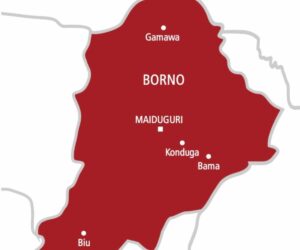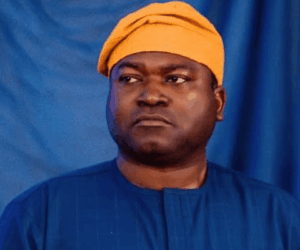The Development Agenda for Western Nigeria (DAWN) Commission has called on the National Assembly to immediately enact laws enabling the establishment of state police, warning that Nigeria is approaching a breaking point as violent crimes spread across all regions of the country.
In a statement issued on Wednesday by its Director-General, Seye Oyeleye, the commission said the scale and frequency of attacks by terrorists, bandits and other criminal groups have grown increasingly alarming, leaving communities devastated and security agencies overstretched.
According to the commission, recent raids in Benue, where villages were razed, and residents displaced, and the abduction of schoolchildren in Kebbi, highlight the country’s growing vulnerability.
Attacks on highways and residential areas in major cities, it added, have further eroded public confidence in the government’s ability to protect lives and property.
The commission also raised concerns over international reactions to Nigeria’s security situation, noting that the Trump administration in the United States has threatened foreign intervention over alleged persecution of Christians.
“Such external pressures, if materialized, would complicate Nigeria’s already fragile ethno-religious relationships, displace millions, and cast a long shadow over the country’s sovereignty and future stability,” the statement read.
Mr Oyeleye argued that the persistence of insecurity has pushed communities toward self-help measures, fueling the spread of unregulated vigilante groups and increasing the risk of widespread disorder. He said only a systemic restructuring of the country’s policing framework can forestall a deeper crisis.
Mr Oyeleye further noted that state police would allow sub-national governments to tailor security strategies to their specific challenges, whether in the North-west, Niger Delta or South-west.
“Localised policing allows for intelligence gathering rooted in community knowledge, enabling swift and precise responses to threats.
“State police will serve as a force multiplier, complementing federal agencies rather than competing with them, thereby creating a layered and resilient security architecture. It will also signal to the world that Nigeria is serious about confronting its insecurity challenges head-on and is willing to adopt systemic reforms to safeguard its future,” he said
Safeguards against abuse
The commission acknowledged concerns that state police could be misused by governors but said such fears can be addressed through clear constitutional safeguards, independent oversight mechanisms and strict professional standards for recruitment and operations.
It stressed that state police should complement, not rival the existing federal security system.
Warning that Nigeria’s unity and sovereignty are at stake, DAWN described the establishment of state police as a “moral imperative,” insisting that every delay in reform deepens mistrust and puts more lives at risk.
READ ALSO: One officer killed as police battle gunmen in Abuja community Official
The commission urged lawmakers and the Federal Government to expedite work on the necessary legal frameworks, saying decisive action is required to prevent a further slide into lawlessness and restore public confidence in the country’s security architecture.
The debate over state police gained national momentum in the mid-2010s as insecurity worsened across different regions, especially with rising kidnapping, banditry, and rural attacks. Many governors argued that the federal police structure, created in the 1960s, could no longer cope with modern security challenges.
Public reaction at the time was mixed. While many citizens and civil society groups supported the idea as a practical response to growing insecurity, others feared that politicians might misuse state-controlled forces. Despite these concerns, calls for decentralised policing continued to grow as security problems deepened.











